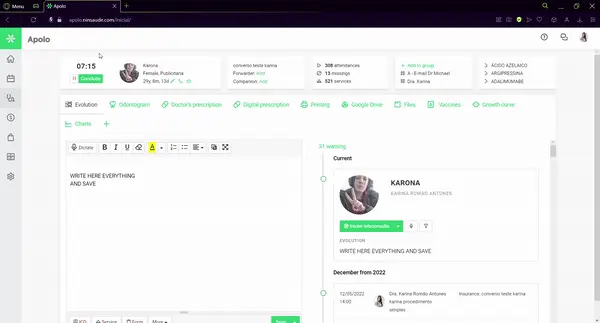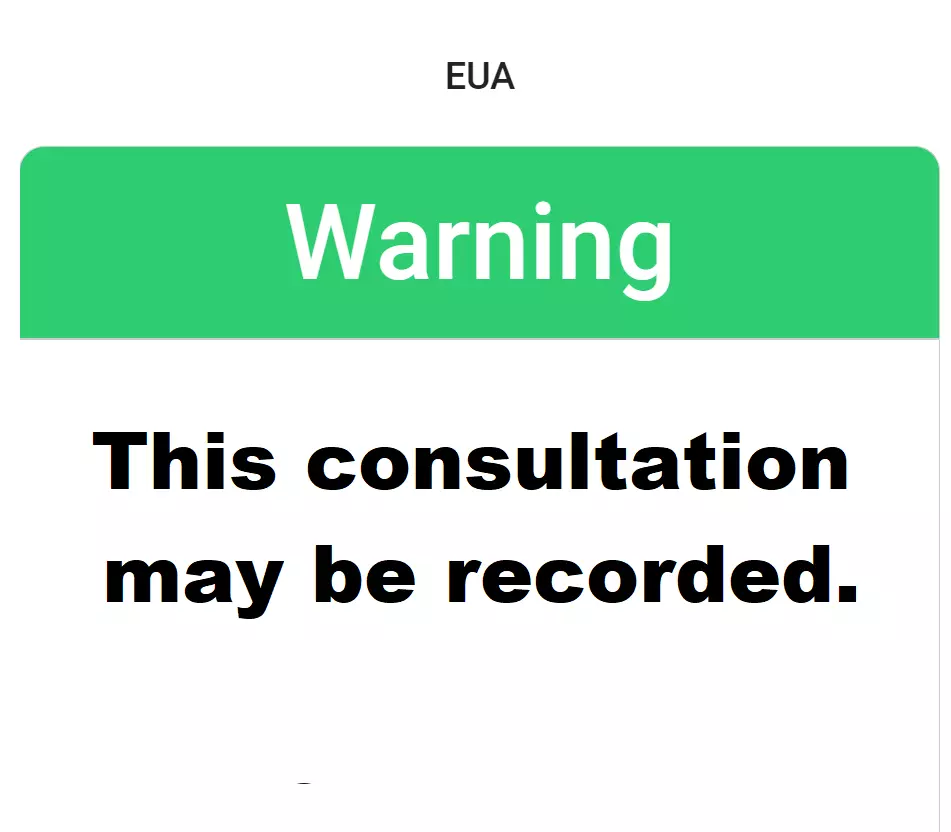Judicialization in the health area has grown a lot in recent years, and this has been happening because more and more people are asking for indemnities after enjoying medical services, either because of bodily, material, moral, aesthetic, or existential damage. The fact is that the doctor is not always responsible for such damages, and having tools that help prove this is essential, as well as obtaining medical liability insurance, which will guarantee all the expenses necessary for its defense.
In the health area, Medical and Dental Liability Insurance has helped many professionals concerning their defense in cases of incidents involving patients. But after all, how does medical insurance or dental insurance work, and what is their importance in the health market?
Like Dental Liability Insurance, Medical Civil Liability Insurance aims to protect health professionals from possible damages, ensuring payment of compensation and legal advice. Therefore, lawyers' fees, sureties, incumbencies, and other expenses of the lawyer with driving, accommodation, and similar expenses may be covered by the insurance you have contracted. In other words, Medical or Dental Professional Liability Insurance will cover the expenses of your defense in a civil or criminal process.
Before we continue, we need to ask: Do you already know our system Ninsaúde Clinic for health clinics? The health software Ninsaúde Clinic has an agile and complete schedule, personalized electronic medical records for each specialty, and with legal validity, teleconsultation, financial control, and much more. Schedule a demo or try the Ninsaúde Clinic clinic's software right now!
It is possible to state that in the current scenario, approximately 7% of Brazilian doctors face some type of lawsuit, whether in the civil, criminal, or administrative area. Compared to the US average, where the number reaches 9% when it comes to doctors responding to some process, we can say that the number of doctors who go through this situation is quite high.
About the specialties, we can say that the main areas that suffer judicialization in health are: Gynecology and Obstetrics (27.14%), Orthopedics and Traumatology (15.71%), Plastic Surgery and General Surgery, both with 10%, and other specialties such as Cardiology, Pediatrics, and Ophthalmology, which account for less than 10% of cases.
In part, the increase in the judicialization of health, not only in Brazil but also in other countries, can be attributed to the occurrence of adverse events related to human health products and their misuse. Overdose (caused by the accidental or intentional use of a drug whose maximum dose was specified in the package insert) or even the lack of effectiveness of the same, can lead the patient to trigger the Judiciary.
In addition to issues involving medication, each specialty usually suffers from other different accusations. According to a survey carried out by CREMESP (Regional Council of Medicine of the State of São Paulo), complaints can range from sexual harassment to bad relationships between doctors and family members. In this sense, a good professional relationship in the doctor-patient context, marked by respect and transparency, was identified as the best way to prevent judicialization in health.
How much does Medical Liability Insurance cost?
The value of a PCL (Professional Civil Liability) insurance varies according to the risks of the profession. Doctors are at different risks than engineers, just as dentists are at different risks than lawyers, for example. For this reason, healthcare professionals should look for insurers of their choice to see how much it will cost, since the amount insured can vary from R$100,000 to R$1 million (in Brazil).
It is important to emphasize that some criteria will be evaluated when defining the value of Medical Liability Insurance, some of them being:
- Professional activity and history of the insured person;
- Frequency of lawsuits related to the activity and average cost of indemnities for professional civil liability;
- Amount insured to be contracted;
- The risk that insurance represents for the insurer.
What are the coverage conditions?
Medical Liability Insurance covers damage related to bodily injury, and moral, and material damages caused to third parties, provided that such damages are involuntary (or considered an accident), and if they are within the amount stipulated as an insured amount.
Another observation that should be made when hiring is that some insurers may not offer coverage for very specific items. For example, if you are a plastic surgeon, you work with an aesthetic purpose. Therefore, you must look for an insurer that supports not only the aesthetic damage but also the aesthetic risk, which are two different things. If you have positions such as team leader or technical manager, it is also important to check whether these additional coverages exist.

In addition, coverage may be restricted to cases related to the provision of your professional service, even if such a claim is false or unfounded. In this sense, it is important to be prepared for any type of accusation and to have tools that can generate evidence in your favor, as is the case of Apolo Safe Clinic.
Ninsaúde Clinic Safe: what is it?
Developed to bring more security to doctors, Ninsaúde Clinic Safe is a tool present in the system for Ninsaúde Clinic clinics and its main objective is to avoid medical lawsuits. And if even so, a case is taken to court, Ninsaúde Clinic Safe can be used as an auxiliary tool for medical insurance.
How does it work?
Next to the chart screen of the medical software Ninsaúde Clinic, the health professional will be able to record the entire conversation with the patient during the attendance, through audio capture. This information will be attached to the patient's medical record, but it is important to emphasize that this action does not replace the medical records, serving only as a complement.

Inside the Ninsaúde Clinic Safe, the health professional can also print a notice to place in his office, so that the patient is aware of the audio capture. In addition, it is also recommended to sign a consent form, which, when well-designed and easy for the patient to understand, contributes to a safe and quality professional practice.

In addition to storage within the patient's history, the captured data can also be accessed through the Ninsaúde Clinic Safe panel (same place where you should print the warning sign), a screen to which only the clinic's health professionals will have access.
When to use it?
Medical judicialization can be the result of several factors. Let's say a patient did not follow your recommendations, thus generating negative results. This is one of the reasons that can lead the patient to seek Justice, alleging negligence on the part of the physician, even if the error was the patient's own. Another common case is when the patient undergoes plastic surgery that does not meet their expectations, leading to the belief that a medical error may have occurred.
In addition to these examples, there may still be accusations of sexual harassment, misconduct, and discrimination (racial, social, religious, etc.), among others. Therefore, if there is a need to prove that the patient is acting in bad faith and/or making unfounded accusations, the health professional will be able to use the information obtained through Ninsaúde Clinic Safe, from the Ninsaúde Clinic clinic system.
Legal issues
Did you know that several patients usually record their appointments? What many claims is that recording can be a way to better understand the treatment, since that way, you can hear what the doctor said during the appointment at home. The HIPAA - Health Insurance Portability and Accountability Act, has a guide to recordings in clinical areas that says "photography, video, and audio recordings (collectively recordings) have the potential to violate patient privacy and interfere with patient care. Recordings must be taken, used, and/or disclosed in compliance with state and federal law. The HIPAA sets out rules for the recording of protected health information (PHI) and the recording of individuals (visitors, employees, or patients)."
Thus, it is understood that if the patient is authorized to perform such recording, the health professional is too. So, if the doctor feels insecure, he can also record the medical care, but with great caution. In addition to the previously mentioned warning sign, drawing up a consent form is important because, although it is not intended to avoid legal claims, it is a document that aims to ensure the understanding of the patient, while valuing their autonomy in decision-making processes.
Finally, a very important point that must be respected is that the recording should not be made available on social networks, Whatsapp, or press conversations, neither by the patient nor by the doctor. Anyone who shares this type of information may respond not only to voice violations but in the case of health professionals, also through a professional ethical process.

So, did you like the tips? Keep following the blog for more content like this. Are you a healthcare professional but still don't use management software? Get to know the system for Ninsaúde Clinic.
